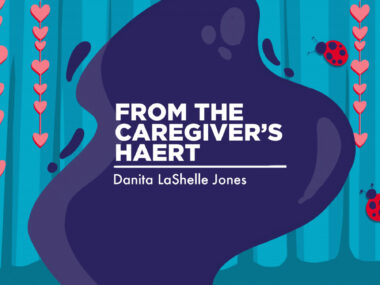Flexibility is the word of the day when caring for an HAE patient
Sometimes the best plans are the ones I'm prepared to change
Written by |

“And what’s the word for today?” I asked my team at work after rattling off all the elements of the run sheet for the day.
“Flexibility,” the room unenthusiastically replied in unison. It was something I made them say every week.
“Is there ever a week where flexibility isn’t the word of the day?” one team member asked.
“Nope,” I clipped.
It was true. When executing live church services that are streamed globally every week, “flexibility” is the most necessary word in our vocabulary. With choirs, smaller singing groups, about 10 platform participants, graphics, in-house and broadcast audio, cameras, and other moving pieces, it’s imperative that we execute every element flawlessly.
But my team’s lack of enthusiasm when they repeat the word for the day is rooted in something much deeper. Being flexible means we have to be prepared to scrap everything we planned and shift into a mode that involves excessive backstage work.
I’m used to this. As a theater director, I thrive in any live production situation that might change on a dime. One of my favorite things is making quick decisions and adjustments at the last minute so that plays or programs flow smoothly.
Learning to live with the unpredictability of HAE
I’ve been resistant to applying this strategy to my everyday life, though.
When our oldest daughter, whom we nicknamed Ladybug, was diagnosed with hereditary angioedema (HAE), it came at a time in my personal life when I thrived on rigidly executing logistics.
Our kids had after-school activities, homework tables, and weekend commitments. I was prepared for the occasional sick kid or activity cancellation, but if things didn’t go as planned, I would desperately and quickly return to what I considered “normal.”
Our daughter’s illness obliterated all of that. The unpredictability of HAE, especially during the early stages of her diagnosis, demanded being flexible.
I had to rearrange school pickup, reschedule parent-teacher conferences, cancel Saturday night dates, and even leave the dentist in the middle of a teeth cleaning because Ladybug’s flares were unpredictable and frequent.
As ridiculous as it sounds, though I was a person who could rise to any occasion in my day job, I was falling apart in my personal life. HAE doesn’t follow any plans, which, at the time, seemed to be its worst offense.
Three years after Ladybug’s diagnosis, I realize that although our life won’t always go as scheduled, it’s not the end of the world. Just like in a live production, when I discover that our best-laid plans are about to derail, I execute solutions that we’re already prepared to utilize.
Are we prepared for the kids to go to school every day? Yes. But if Ladybug wakes up with a flare, we execute the Berinert plan, keep her home, and get the other kids to school. Does that work every time? No. Sometimes, we must implement the hospital plan or emergency doctor visit. And that’s OK.
As a caregiver of someone with a rare disease, I’m finally starting to embrace the reality that sometimes the best plans are the ones I’m prepared to change so I can keep going.
In the words of author Jeff Ocaya: “When the winds of change blow, it’s up to us to adjust our sails and keep moving forward.”
Note: Angioedema News is strictly a news and information website about the disease. It does not provide medical advice, diagnosis, or treatment. This content is not intended to be a substitute for professional medical advice, diagnosis, or treatment. Always seek the advice of your physician or other qualified health provider with any questions you may have regarding a medical condition. Never disregard professional medical advice or delay in seeking it because of something you have read on this website. The opinions expressed in this column are not those of Angioedema News or its parent company, Bionews, and are intended to spark discussion about issues pertaining to angioedema.



Leave a comment
Fill in the required fields to post. Your email address will not be published.